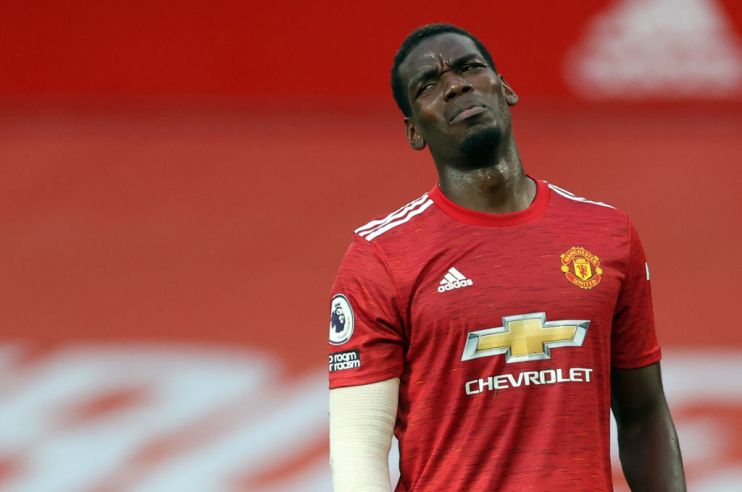Manchester United lose £23m as coronavirus cuts revenue by £120m

Manchester United suffered a £23m loss as revenue plunged by almost 20 per cent for the year ending 30 June.
Annual income fell to £509m, from £627m the previous year, as the coronavirus outbreak saw football suspended.
All three of Manchester United’s main revenue streams were hit during the fourth quarter, when most games were called off.
Matchday income was down 77 per cent on the same period last year, while broadcast income fell 59 per cent and commercial 11 per cent.
Debt more than doubled to £474m, which the club attributed to deferred sponsor payments and the loss of ticket sales.
English football has been badly hit by the pandemic, which led to matches in the Premier League being halted from March until June.
Supporters remained unable to attend games even when play resumed, and their continued absence costs teams up to £3m per game in income.
Then club also suffered from not playing in the lucrative Champions League, having failed to qualify.
Manchester United executive vice chairman Ed Woodward said it had been “one of the most extraordinary and challenging seasons in recent history”.
“There are still big challenges and uncertainties ahead as the Covid-19 pandemic continues to disrupt our way of life across the globe,” he told investors on a call.
“This disruption is clear to see in the financial results we’re announcing today and we expect the impact to remain visible for quite some time to come.”
Woodward on Project Big Picture
Woodward also addressed a mooted shake-up of English football, dubbed Project Big Picture, which United are credited with helping to draw up.
The overhaul would give more money to lower leagues but hand greater power to United and other big clubs.
It was defeated at a vote of Premier League teams last week, but there remains a sense that the richest teams remain restless.
“We are also committed to playing a constructive role in helping the wider football pyramid through this period of adversity, while exploring options for making the English game stronger and more sustainable in the long-term,” he added.
“This requires strategic vision and leadership from all stakeholders, and we look forward to helping drive forward that process in a timely manner.”
